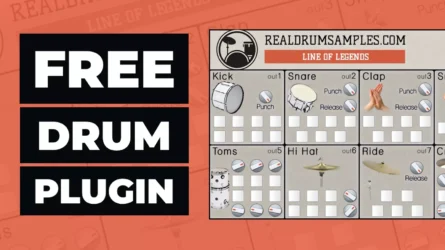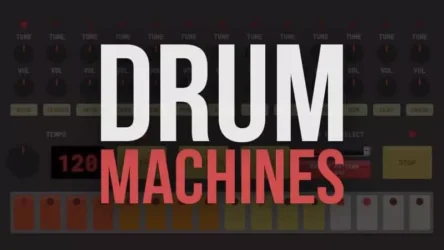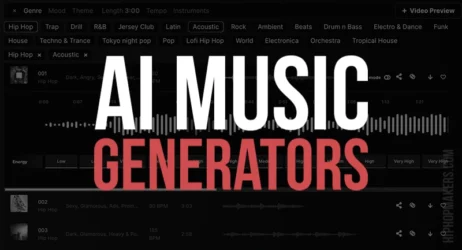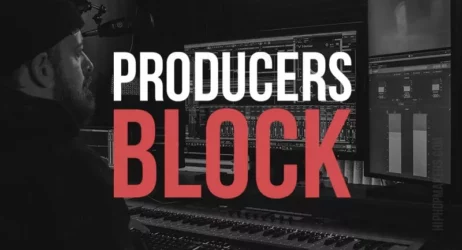This essential guide will answer what is a verse in music, provide examples of verses, and answer many other song-related questions.
What Is A Verse in Music?
A verse in music is a section of a song that includes song lyrics that are rapped or sung. Songs typically consist of 2 to 3 verses that are 16 bars in length, and appear before and after the choruses. Verses are a series of lyrics used to express the main point and topic of a song.
- What is a Verse in Music
- What Is A Example of a Verse
- How Long is a Verse
- How Many Verses Are in a Song
- How Do You Write a Verse
- Where Does a Verse Belong in a Song
- How Long Is A Rap Verse
- How Many Minutes Should A Verse Be
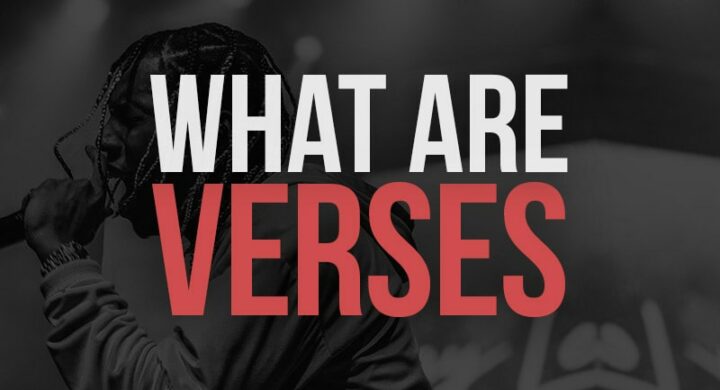
What is a Verse in Music?
In a song, when two or more sections have almost the same music but different lyrics, each section is considered one verse.
The purpose of verse in a song is to reveal the storyline and melody of the song, and it helps in propelling the listener towards the chorus while conveying the song’s basic mood and message.
It helps in building anticipation and providing contrast to the chorus of a song.
In terms of lyrics, the verse is the section where the story develops and advances. One can split the story into two parts and think about building the second verse on the first verse.
Some songwriters also use the second verse of a song to change the meaning or subvert the meaning of the song’s chorus or even the complete song with different lyrics.
Note that the melody and chord pattern of the verses are usually the same from one verse to another, with the only exception being that some minor variations may be done in the melody to make a lyric fit.
Compared to the chorus section in a song, the verse part keeps on varying more throughout the song.
Related: What is a Chorus | What is a Bridge
What Is A Example of a Verse?
The first example of a verse in a song can be the song Major Lazor – “Lean On”. The song follows ABABCB form.
Here’s the breakdown of the song based on the timings:
| Song’s Section (Major Lazor – Lean on) | Timing |
| Verse – 1 | 0:10 |
| Pre-Chorus 2 | 0:20 |
| Chorus | 0:30 |
| Verse -2 | 1:10 |
| Pre – Chorus 2 | 1:20 |
| Chorus | 1:30 |
| Bridge | 2:12 |
| Chorus | 2:30 |
How Long is a Verse?
Verses are generally 8 or 16 bars long. There is usually common practice to keep the first two verses longer than the last one. For instance, the first two verses can be 16 bars each, while the third can only be 8 bars.
How Many Verses Are in a Song?
The number of verses in a song can vary, but typically, you’ll find between 2 to 4 verses in most popular music. The verse of a song is the part that tells the story. It’s the “meat and potatoes” of the song.
It’s the part where the songwriter unfolds the details, emotions, or scenes. Each verse usually contains different lyrics, which helps the song’s story to progress.
But remember, music is like a vast ocean – deep and full of surprises. Sometimes, you may find a song with just one verse, and other times. A song might have more than four verses.
It all depends on the music artist’s creativity and the message they want to get across. Study your favorite songs and try to count how many verses it has. You might discover something new about the music you love.
How Do You Write a Song Verse?
Here are some of the tips that will be helpful to write a verse in a song:
Set the Central Theme or Idea
Since verse tells the story in a song, it is important that you set the central them or idea on which you want your song to be based.
Instead of choosing the general topics, you can think about the specific images and ways you might develop them in a music piece.
Set The Stage
When you write your verse, especially in the opening of a song, it is a good idea to lay down all the important details that will come up later in the song.
It will provide the listener of the song with all the key elements to make sense of what they are hearing.
When you write the starting verse, you can set the stage for the chorus and later verses by discussing the main characters or conflicts within the first few lines.
Convey Story With Your Verse
You can use different verses to tell the main story of the song, and you can let the chorus restate the main points of your story.
Allow your verses to take the listener deeper into your story of the song. It is the chance to attract your listener with a compelling narrative, and you can make them long for the second chorus.
Use Good Rhyming Scheme
Using a powerful rhyming scheme is also one of the crucial things to make your verse effective.
Rhyming schemes are nothing but the ordered pattern of rhymes at the end of a verse.
For example, if we discuss the ABAB rhyming scheme, then it will have the lyrics that will rhyme on the last word of each stanza (All the A stanzas will rhyme together, and all the B stanza will rhyme together)
Using rhyming schemes is important because it will keep your listeners hooked and make them wait to think about what word will be rhymed next.
There are many different rhyming schemes there, such as the ABCB, AABBCC, ABAB, etc. You can see what suits best to your needs to convey the story.
Use Expressive Language
You can write your main ideas first and then later o you can refine them. You can use things like simile, metaphor, etc., to tell your story and make it more engaging for the listener.
Where Does a Verse Belong in a Song?
When listening to a song verse is generally the first thing a listener hears, and the song’s intro prefaces it.
A typical song structure generally looks like this:
Intro – {Verse} – {Chorus} – {Verse} – {Chorus} – {Bridge} – {Chorus} – Outro
The above structure is also known as the ABABCB structure where
- A = Verse
- B = Chorus
- C = Bridge
Where the Verse section goes in simply depends on the song structure of a song. As in the above-discussed structure, the Verse section goes just after the intro.
How Long Is A Rap Verse?
In rap songs, the verse is the primary part of the rapping, and the artists make their point. The duration is generally 16 bars, but it may also last 8 bars, 12 bars, and 24 bars.
How Many Minutes Should A Verse Be?
Most commercial songs are nowadays 3-4 minutes long. So a general rule of thumb, it is good to keep song verses under 1 minute or just a few lines.
Summary of Verse in Music
Music verses are sections of a song that include lyrics that are rapped or sung. There are typically two to three verses in a song, each of which is 16 bars long, appearing before and after the chorus. The lyrics of a song express the song’s main theme.
A verse in a song is a vital component of the basic song structure, providing depth to the song’s meaning. Whether in rock music, pop music, or most modern songs, verses tend to follow the same chord progression, establishing the same harmonic structure that sets the tone.
The verse-chorus form is a common pattern in popular music, emphasizing the main idea and driving the song’s narrative.
Repeating verses share the same melody, enhancing the catchy musical phrase that listeners remember.
This basic song pattern is evident in most songs, whether they contain only a single verse or have subsequent verse sections.
An excellent verse example is found in hit songs where shorter verses and rhyming lyrics build musical tension and lead into a great chorus.
Both the verse and chorus can be identified by the chord progression or even by a verse supporting an instrumental solo. For instance, in rock and pop music, an effective verse often segues into a memorable solo section.
All the verses in a song, including a good verse or a single verse, contribute to the musical structure.
Take the verses of the song “What a Wonderful World,” for example. Each verse supports the song lyric, and the repeating musical phrases create a familiar pattern, aiding in the overall music production.
In conclusion, the verse plays a crucial role in the basic song pattern – from establishing the same melody and chord progression to promoting a song’s meaning – underpins the successful design of many songs, making it an essential aspect of common and modern music.
I hope you found this info helpful and that we successfully answered what is a verse in music.

